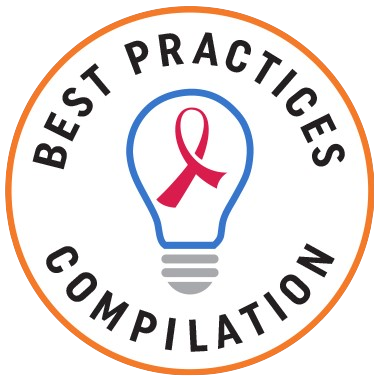Link-Up Rx is a pharmacy-data-based Data to Care (D2C) program implemented by the Detroit Health Department in partnership with the Michigan Department of Health and Human Services (MDHHS) and a specialty pharmacy. Using pharmacy data to identify clients in need of follow-up greatly reduced the amount of time for clients to appear on “not in care” lists compared to traditional D2C approaches. Protocols for a three-tiered outreach and reengagement approach were developed to connect clients back to antiretroviral therapy (ART) and HIV care following a missed pharmacy pick-up. Nearly half of identified clients were linked back to their pharmacy or other HIV medical services.
Detroit, MI
This intervention identifies clients in need of follow-up through pharmacy data, enhancing traditional D2C approaches. Prior to the Link-Up Rx intervention, clients would not appear on the D2C “not in care” list until several months after a missed appointment. Link-Up Rx uses pharmacy data (prescription refill data) to more quickly identify clients who need outreach. It reduced the time that the intervention team was notified of a client missing a medication pick-up to only two weeks.
Clients are flagged for this intervention when they do not pick up their ART medication at the participating specialty pharmacy.
There is a three-tiered approach to outreach and reengagement:
- In the first week after the missed pick-up, the pharmacist attempts to contact the client directly to bring them back into the pharmacy.
- In the second week, the pharmacist reaches out to the client’s prescribing physician to gather additional information (e.g., if the ART has been sent to another pharmacy). The prescribing physician will also attempt to reach the client.
- In the third week, the case is referred to a linkage specialist at Detroit Health Department. The linkage specialist will also attempt outreach and will review CAREWare data to identify additional agencies that may assist in reaching the client.
Clients located at any stage in the outreach process are connected to the pharmacy and/or prescribing physician to pick up their ART. Referrals are made to supportive services if needed. Detroit Health Department follows up on these referrals after one week to ensure that linkage was made successfully and conducts weekly follow-ups until the client is reengaged in HIV care.
Supported by the Center for Innovation and Engagement’s (CIE) Equity in Evaluation Project, Link-Up Rx was evaluated for 393 clients from 2019–2020, finding small improvements in viral suppression as well as nearly half of clients linked back to HIV medical care. Qualitative data indicated that reengagement in care was highly influenced by social determinants of health, which led to additional targeted interventions to reduce these barriers.
| Category | Information |
|---|---|
| Evaluation data |
|
| Measures |
|
| Results |
|
Source: NASTAD. Link-Up Rx intervention. [SPNS Intervention Guide.] July 2022
Collaboration between city and state health departments. Detroit Health Department has worked closely with MDHHS since 2016 on D2C programming, and has continued to meet and collaborate regularly on expanding the program. Funding for Link-Up Rx was secured in late 2017 after identifying gaps in the existing D2C program.
Collaboration with ADAP and pharmacies. Detroit Health Department worked with the state ADAP program to determine which participating pharmacies were prescribing the highest volume of HIV medications, which helped them to target their outreach efforts to specific pharmacies. Detroit Health Department hosted a series of meetings to identify participating pharmacies and pharmacists to participate in the intervention; and these meetings helped to identify data barriers (i.e., pharmacists lack of access to lab data), what pharmacists can do to support outreach, and program design.
Development of outreach and reengagement protocol. Detroit Health Department then spent several months working with stakeholders to develop the reengagement protocol, including detailed explanations of activities that occur at each step. Detroit Health Department also engaged external stakeholders including community members, providers and the local HIV planning council, in the design of the program.
- This project is funded using RWHAP Part B rebate dollars generated by the state, with an initial funding amount of $250,000 in 2018, and a subsequent increase to $350,000 a year for implementation and staffing. The funding supports a 1.0 FTE linkage specialist, a 1.0 FTE Link-Up Rx program coordinator, and a partial FTE HIV care program coordinator.
- In addition to the activities completed by Detroit Health Department, partnerships with pharmacists, insurance navigators, and RWHAP providers are necessary for the successful implementation of Link-Up Rx.
- Clients who are eligible for the intervention are very often dealing with barriers to care related to social determinants of health. Connecting clients to supportive services and providing adherence counseling may help to address these barriers.
- The Link-Up Rx team and the MDHHS identified that insurance barriers were common and worked together to identify an insurance navigator to help clients connect to appropriate coverage sources.
- Identifying people with lived experience can help to better engage clients; Detroit Health Department worked to adopt inclusive hiring practices and onboarding processes to build out the intervention team.

